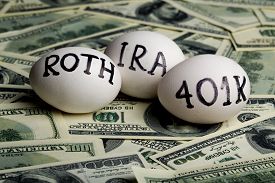Yes, you can contribute to both a Roth IRA and an employer-sponsored retirement plan such as a 401(k), SEP or SIMPLE IRA. However, each type of retirement account has annual contribution limits. You can contribute to a Roth at any age, even past retirement age, as long as you’re still earning taxable income. A working spouse can also contribute to a Roth IRA on behalf of a nonworking spouse.
Contributing to both a Roth IRA and an employer-sponsored retirement plan can make it possible to save as much in tax-advantaged retirement accounts as the law allows. The tax advantages of these accounts help your savings grow faster and larger than they would in a non-tax-advantaged account. The more you contribute to your retirement savings accounts each year, the earlier you’ll have the option to retire, as long as you invest those savings wisely. Also, since it’s impossible to know what tax bracket you’ll be in at various stages in your retirement or what the tax rates will be at that time, it’s not a bad idea to have some retirement savings that you’ve already paid taxes on, like the funds in a Roth IRA, and some that you haven’t, like the funds in a 401(k). Then you can strategize your distributions to minimize your tax liability.
You can also contribute to a traditional IRA even if you participate in an employer-sponsored retirement plan, but in some cases not all of your traditional IRA contributions will be tax deductible.
Before contributing to a Roth, make sure you are contributing enough to your employer’s retirement plan to take full advantage of any matching contribution your employer offers.
This information is not intended to be tax or legal advice, and it may not be relied on for the purpose of avoiding any federal tax penalties. You are encouraged to seek tax or legal advice from an independent professional advisor.


